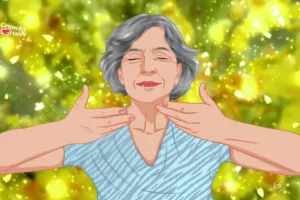5 Natural Ways To Manage Symptoms Of Menopause
Whether you like it or not menopause is something you’ll eventually have to come to terms with. Hot flushes, night sweats and mood swings are just a few of the symptoms women have to contend with as they get older. But don’t despair, we’re here to tell you the menopause doesn’t have to be miserable.
Healthcare providers typically offer HRT, known as hormone replacement therapies. However, there are also complementary or alternative treatments that can help to relieve menopause symptoms. They usually fall into two categories: mind-body practices (such as hypnosis, cognitive behavioural therapy, relaxation, biofeedback, meditation), and natural products (eg. herbs, vitamins, minerals, food supplements).
In addition, there are several whole system alternative medicine approaches to consider from traditional Chinese medicine to reflexology or acupuncture, including homoeopathy.
Sharon MacArthur, Menopause Educator and British Menopause Society Member, stress the importance of and getting informed on whatever therapy a woman chooses.
The most important thing with any remedy you want to try is to do your research and get the facts – she said-. For example, Black cohosh is natural but some studies on this herbal remedy found out that it damages your liver functions. If menopause impacts your life, doing nothing should not be an option. It could be anything; Yoga, HRT, relaxation or taking vitamins.
The alternative therapies
From a holistic perspective, menopause is not an illness, but a life transition through which all women pass. Staying healthy during this phase may mean making some changes in the way you live; even though symptoms can be difficult to deal with, integrative therapies can help bring the body into optimal balance. Here are some of the most common ones.
-
Yoga and pilates
Regular exercise can help alleviate menopause symptoms such as poor sleep, anxiety, low mood and fatigue. Yoga and pilates, in particular, can increase muscle-strengthening, flexibility and balance.
These practices can help with both the emotional and physical symptoms of menopause – says Vicky Rees, owner at Studio 21-. Physically, they can help you to feel better, boost your metabolism and increase bone and muscle strength. If women are new to exercise, I’d always recommend starting with a beginners class and restorative yoga classes like Yin Yoga. A combination of brisk walking and Pilates would be also beneficial to get rid of adipose tissue.
-
Relaxation Techniques
For menopausal women, mindfulness-based interventions may improve their quality of life, too. A 2018 British study found these techniques significantly reduced hot flushes and weakened other menopausal symptoms such as depression, anxiety, and insomnia.
Annette Straight, Angelic Reiki Master and Complementary Therapist said that anything which calms the mind and relaxes the body can help to bring relief from the distressing symptoms of menopause.
Many people think it is difficult to meditate – she explains-. The most straightforward technique I have found is to sit comfortably and focus on breathing in through the nose and out through the mouth. I remember the misery of hot flushes and fatigue when I went through menopause. I wasn’t a practitioner then, but using a mantra like ‘My body is cool and energised’ could have helped me. As you do this, you begin to relax mentally and physically, which de-stresses the mind and body.
-
Massages
Massage is the most common natural remedy. It reduces muscle tension, improves blood circulation and stimulates the lymphatic system. Some studies reported that women experiencing insomnia as a symptom of menopause may improve the quality of their sleep and release tension thanks to regular sessions. The Swedish massage, in particular, seems the most requested by women experiencing menopause as this modality is deeply relaxing.
-
Hypnosis
One approach which is recommended by the North American Menopause Society for the management of menopause symptoms is hypnotherapy. As reported by Psychology Today, whilst Cognitive Behavioural Therapy (CBT) has been shown to help reduce the stress experienced from hot flashes and yoga can help women improve their sleep and reduce anxiety, hypnotherapy has been shown to reduce the frequency and intensity of hot flushes in addition to helping with mild depression and anxiety. Research has shown that focusing on cooling imagery whilst in a state of hypnosis allows for greater control over hot flushes and can help prevent them altogether. In fact, hypnosis has been shown to reduce hot flushes and night sweats by up to 74%, showing it to be as effective as HRT in managing these symptoms.
-
Phytoestrogens
Phytoestrogens are plant-based compounds that may mimic the effect of oestrogen in the body and include: soy isoflavones, flaxseed and red clover. Purified pollen extract, in particular, has been found to be a valid alternative in managing vasomotor symptoms in menopause. Please note that some herbal remedies can interact with other medicines and cause side effects. Always ask your family doctor or pharmacist for advice if you’re thinking about using complementary therapy.
Like this post? Support Us or Sign up to our newsletter to get more articles like this delivered straight to your inbox!





